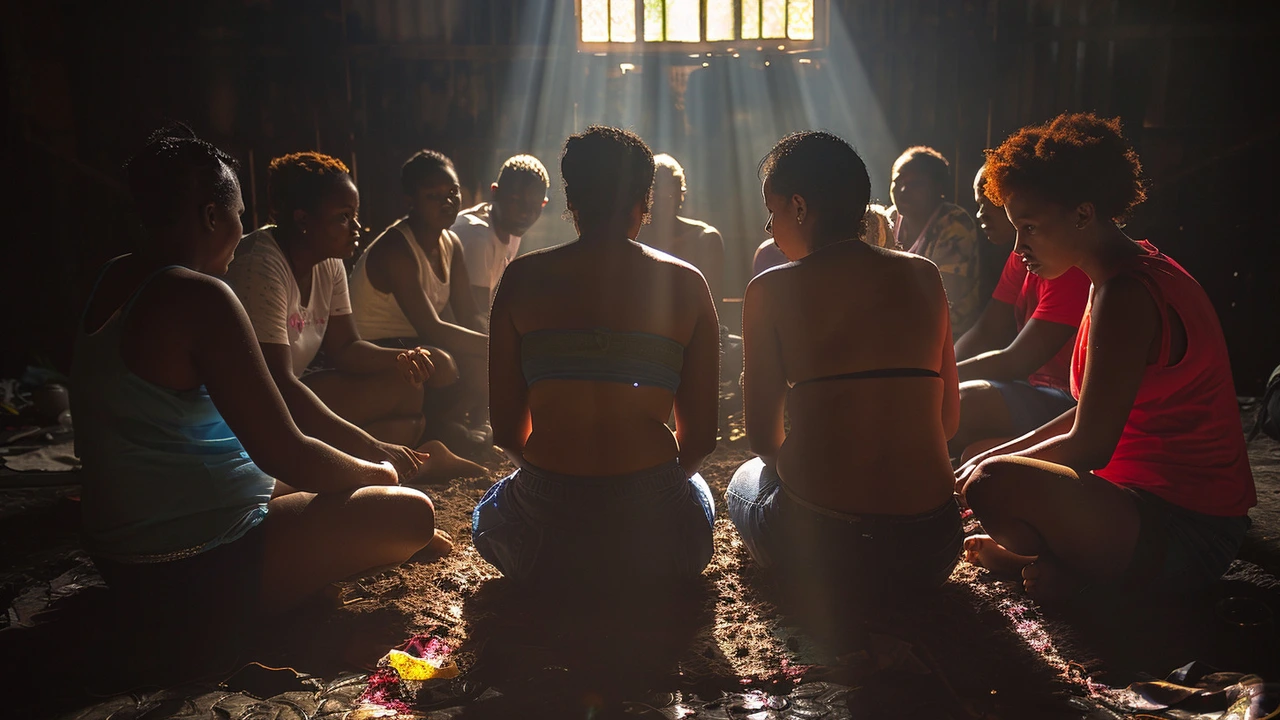- Ensuring Gender Equality: Commission for Gender Equality Observes Upcoming Elections May 29, 2024
- Sika Anoa'i's Unwavering Support for Roman Reigns at WrestleMania 32 Sparks Emotional Tributes Jun 26, 2024
- 2025 U.S. Open: How to watch Novak Djokovic vs. Taylor Fritz tonight — time, TV, and what’s at stake Sep 3, 2025
- Radhika Merchant and Anant Ambani's Lavish Wedding Draws Global Spotlight Jul 13, 2024
- Vybz Kartel's Journey to Health Post-Prison: A New Chapter for the Dancehall Legend Aug 7, 2024
Human trafficking news: latest cases, trends and ways to help
Human trafficking news moves fast and affects communities across Africa and beyond. Every week there are new arrests, court cases, policy changes and rescue operations. This page collects the most important updates so you can stay informed without hunting through many sites.
Start with the facts: trafficking uses force, fraud, or coercion to exploit people for labour, sex, or other purposes. Victims can be any age. Traffickers often use false job offers, fake travel papers, or threats to trap people. Knowing typical tactics helps you spot danger early.
Recent trends and stories
Across African nations the patterns vary. In some countries, traffickers push victims into domestic work or informal labour in cities. In border regions, smugglers shift people into forced labor abroad. News reports often reveal networks that move victims across several countries before forcing them into work or prostitution. Local arrests and major court cases make headlines and can lead to policy action, but many cases never reach courts because victims fear authorities or lack support.
Technology changes how trafficking works and how journalists report it. Social media ads and messaging apps are used to recruit victims, while digital evidence helps investigators track networks. Stay sceptical of job ads that promise high pay with little detail. If something feels off, dig deeper or ask trusted contacts.
How you can help and where to find support
If you suspect trafficking, act quickly but carefully. Contact local police or national hotlines listed by your country’s immigration or labour ministry. Many NGOs in Africa run rescue and rehabilitation programs; they offer shelter, medical care and legal help. Share verified news from trusted outlets and avoid spreading unconfirmed details that could jeopardize investigations.
For families: keep documents safe, check job offers, and confirm employers and agencies. For travellers: avoid unlicensed recruiters and ask for written contracts. For employers: verify worker documents and watch for signs of coercion like restricted movement, unpaid wages, or fear during interviews.
Journalists and bloggers: verify sources, protect victims’ identities, and publish clear contact details for help. Use official records, court documents, and NGO reports to back your stories. Avoid sensational headlines that focus on graphic details rather than the systems that enable trafficking.
Edutree.co.za aims to gather reliable reports, investigations and official statements on human trafficking news. Bookmark this tag for updates, follow local authorities and support grassroot groups helping survivors. If you are an NGO or journalist with verified information, reach out so we can amplify accurate stories and resources.
Stay aware of legal changes in your country and community. New laws can strengthen victim protection and increase prosecutions, but enforcement matters most. Keep reading, share verified alerts, and help build safer local networks by reporting suspicious activity to the right lines.
Sign up for alerts from Edutree, follow NGOs on social media, and join community meetings. Learn basic first aid, local laws, and how shelters operate so you can act if a victim appears. Take action.
Nigerian Man Arrested for Allegedly Trafficking Teenage Girls to Ghana for Prostitution – High Commissioner
- Katlego Sean Mahaye
- Jun 11, 2024
A Nigerian man, Chukwudi Nwachukwu, was apprehended for allegedly trafficking 11 teenage girls to Ghana under the pretense of offering them jobs, only to force them into prostitution. The acting Nigerian High Commissioner in Ghana confirmed the girls are safe, receiving care, and promised their reunification with families after the investigation completes.
